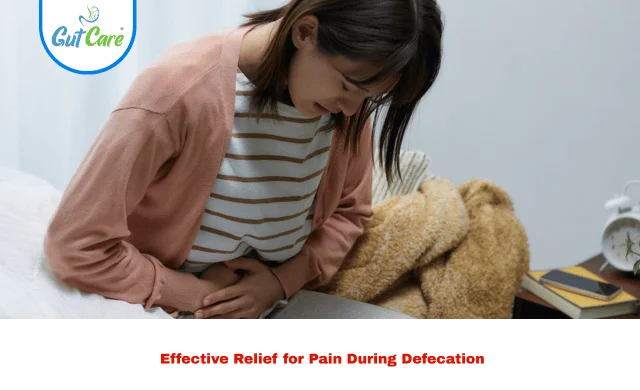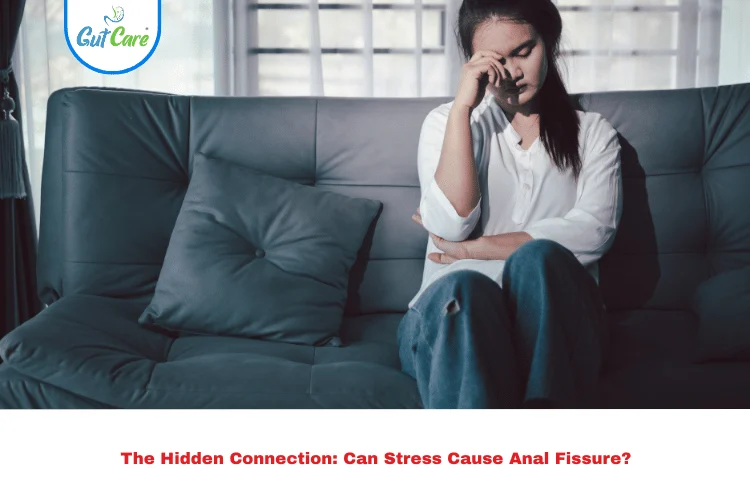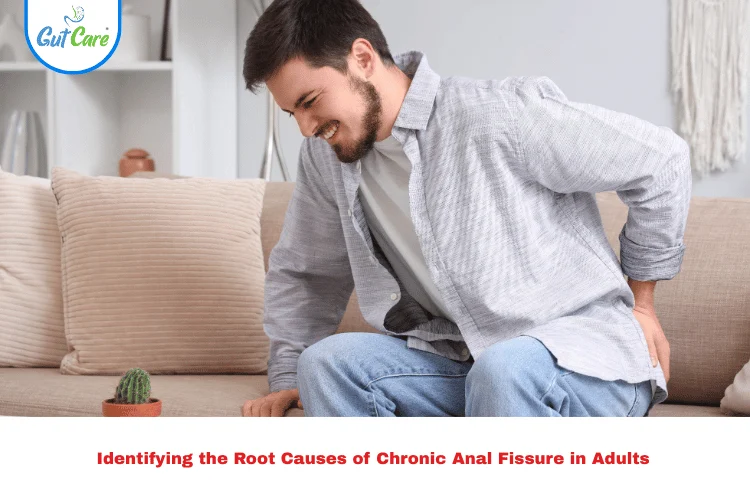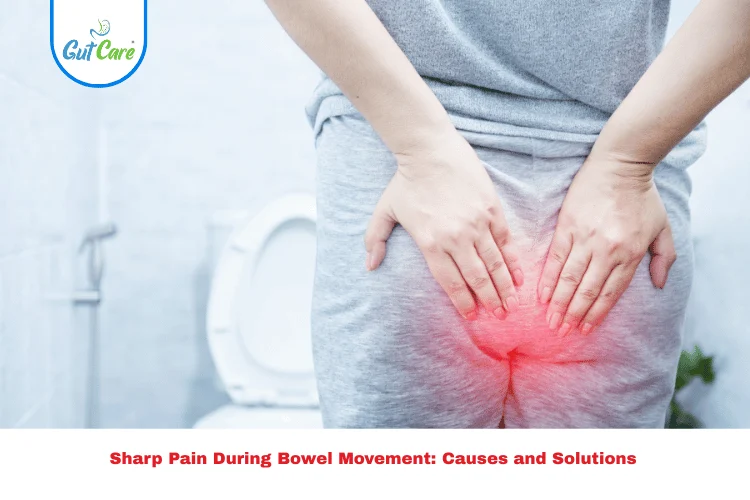Painful Defecation is a common yet serious problem affecting people of every age. It results in discomfort or a sharp, burning pain while passing the feces. At Gutcare Clinics, Bangalore, Dr. Yuvrajsingh Gehlot is a pioneering colorectal surgeon whose area of excellence is identifying the root cause of this anal pain and treating it effectively. Understanding the reasons for Painful Defecation and knowing how to prevent it can help maintain good digestive and anal health.
Understanding Pain During Defecation
Painful Defecation is a symptom wherein there is discomfort during or immediately after the passage of feces. The pain can vary from mild irritation to sharp pain. The condition often arises due to injury, inflammation, or infection in the anal region
.
Medical explanations of Pain During Defecation include pain caused by irritation of the anal canal or rectal lining during the passage of stool. This condition may result from fissures, hemorrhoids, abscesses, or constipation.
Common Causes of Pain During Defecation
Understanding the reasons for anal pain helps in identifying proper treatment. Some of the most common causes include:
- Anal Fissures: Small tears in the anal lining causing sharp pain and bleeding.
- Piles (Hemorrhoids): Swollen veins within the rectum, painful during stool passage.
- Infections or Abscesses: Bacterial infections causing swelling and pain in the anal region.
- Constipation: Hard stools stretch the anal tissues and cause discomfort.
- Inflammatory Conditions: Diseases like Crohn’s or ulcerative colitis causing irritation of the lower intestine.
- Anal Trauma or Surgery: Injury to the anal region can make defecation painful.
Identifying the underlying causes of anal pain early can prevent complications and promote faster healing.
Signs a Fissure Is Healing
Recognizing healing signs helps monitor recovery progress. Common signs include:
- Gradual decrease in pain during defecation.
- Less bleeding and irritation.
- Passage of soft stools with less straining.
- Reduced inflammation around the anus.
If pain persists beyond two weeks, consulting a colorectal surgeon is advised.
Diagnosis of Pain During Defecation
Proper diagnosis is the foundation for successful treatment. At Gutcare Clinics, Dr. Yuvrajsingh Gehlot performs a detailed evaluation that may include:
- Physical Examination: To detect fissures, hemorrhoids, or swelling.
- Anoscopy or Sigmoidoscopy: To visualize the anal canal and rectum.
- Stool Examination or Imaging Studies: To detect infections or inflammation.
Accurate diagnosis ensures that the root cause of Pain During Defecation is addressed.
Medical and Natural Relief Options
Treatment varies depending on the cause and usually includes both medical and lifestyle approaches.
Medical Treatments
- Topical ointments or creams to reduce inflammation and pain.
- Stool Softeners or Laxatives: To ease constipation.
- Antibiotics: If infection is detected.
- Minor Procedures: Laser or surgical correction in serious cases.
At Gutcare Clinics, Bangalore, each patient receives a personalized care plan focused on pain relief and long-term healing.
Diet Plan for Healing and Prevention
A balanced diet plays a vital role in managing Pain While Defecating. High-fiber intake and proper hydration help soften stools and reduce strain.
Recommended Foods
- Fresh fruits such as papaya, apple, and banana.
- Cooked vegetables, lentils, and whole grains.
- Buttermilk, curd, and herbal teas for digestion.
- Warm water in the morning for smooth bowel movement.
Foods to Avoid
- Spicy or oily foods.
- Processed and junk foods.
- Caffeine and alcohol.
- Red meat and refined sugar.
A fiber-rich, light diet promotes natural bowel movements and faster recovery.
Prevention Tips for Pain During Defecation
Simple lifestyle habits can help prevent painful defecation:
- Drink at least 2–3 liters of water daily.
- Avoid straining or sitting too long during bowel movements.
- Exercise regularly to improve bowel function.
- Maintain a fixed meal schedule.
- Use mild wipes instead of rough tissue paper.
These preventive steps reduce the risk of fissures, hemorrhoids, and related conditions.
When to See a Doctor
Severe or persistent Pain While Defecation should not be ignored. If symptoms like bleeding or swelling occur, it’s time to seek expert advice. At Gutcare Clinics, Dr. Yuvrajsingh Gehlot provides advanced diagnosis and treatment for colorectal concerns using modern, safe techniques. Early consultation ensures faster recovery and prevents complications.
Summary
Pain while passing stool may occur due to fissures, hemorrhoids, or constipation. Most cases can be managed with proper diagnosis, diet, and lifestyle changes. For chronic or recurring conditions, consulting specialists like Dr. Yuvrajsingh Gehlot at Gutcare Clinics, Bangalore, ensures expert care and long-term digestive comfort.
FAQs on Pain During Defecation
1. What are the common causes of Pain During Defecation?
The major causes include anal fissures, hemorrhoids, constipation, or infections. These conditions irritate the anal lining and cause pain while passing stool.
2. How is Pain During Defecation diagnosed?
A colorectal surgeon may perform a physical exam, anoscopy, or imaging to determine the underlying reason for discomfort.
3. Can diet help relieve Pain During Defecation?
Yes. A diet rich in fiber, fruits, and fluids helps soften stools, reducing strain and discomfort during bowel movements.
4. What are the signs a fissure is healing?
Pain reduction, less bleeding, and easier stool passage are common signs that a fissure is healing properly.
5. Why choose Gutcare Clinics for Pain During Defecation treatment?
Gutcare Clinics, Bangalore, led by Dr. Yuvrajsingh Gehlot, provides expert diagnosis and customized treatment plans for all types of anal pain, ensuring complete and lasting relief.




